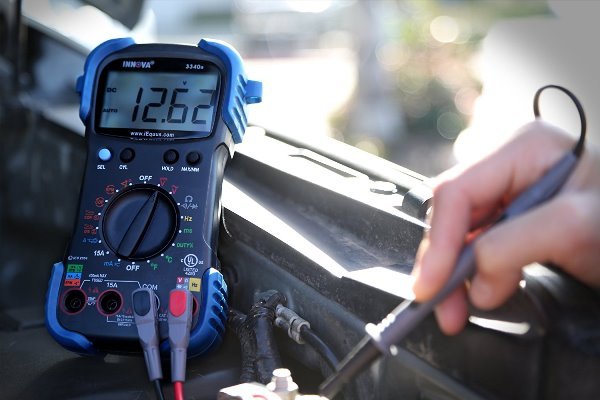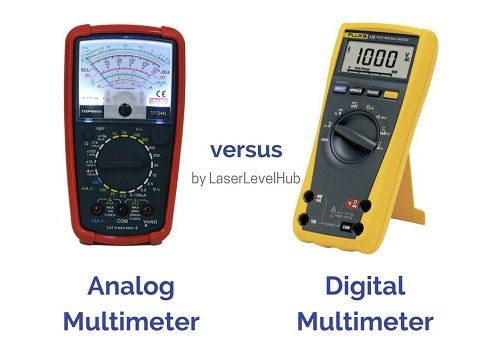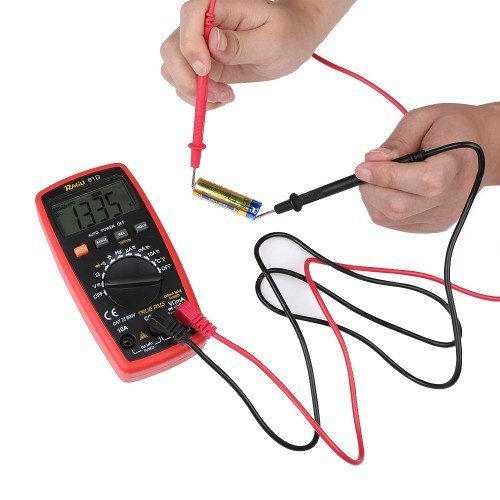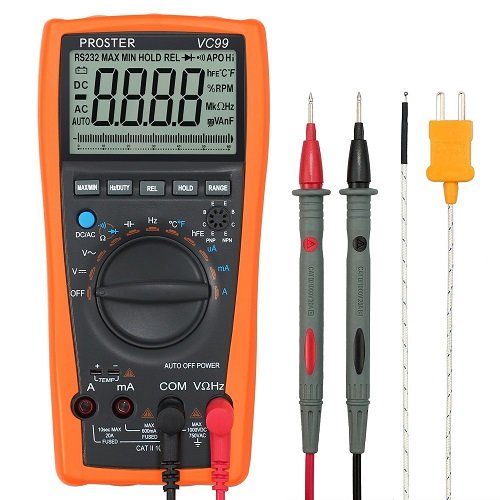Are you getting more serious about circuitry and DIY electronics but have no extensive workbench setup yet?
Test meters or equipment are an essential part of any professional technician’s tool collection or workshop, and a multimeter is one of the essential pieces of equipment anyone can own.
And now that you have decided to take your DIY electronics and circuitry more seriously, the questions that will probably come to your mind is “what is the best multimeter for beginners?” “How do I find or select the best multimeter for electronics hobbyist?”

I know you want to build your equipment inventory hence, the need to select the best multimeter which is undoubtedly one of the most important equipment you can own.
How to Choose The Best Multimeter For Beginners?
When it comes to finding or selecting the best multimeter for you as a beginner or electronic hobbyist, there are certain factors and things you need to have in mind.
These factors include:
Precision And Accuracy
Accuracy and resolution are unarguably the most important factor to consider when selecting the best test instrument.
Since you do not want a meter that detects nearby noise and adds it to its final readings, then you have to distinguish between these factors and determine if it provides true RMS reading by trying it out.
Read reviews of the best multimeter for beginners here
Analog Or Digital Multimeter
Multimeters have a few key differences, the main one being digital versus analog. You need to understand these differences in order to select the best.
Analog multimeters can be difficult to log data and read, but they show real-time changes in current and voltage. On the other hand, digital multimeters can take a few minutes to stabilize, but they are easier to read.

Digital multimeters are more accurate than their analog brothers and are often considered the best multimeters especially for beginners due to the ease of taking measurements.
But if you intend to measure variables that constantly change in values, then your best bet is to go for analog multimeters.
Volts, Amps, and Ohms
All multimeter should be able to offer the basic measurement of volts, amps, and ohms while some include some advanced features like temperature, transistor, capacitance, etc. However, the ideal multimeter for a beginner must be able to record these three basic measurements.
Usage
Since your multimeter will mostly be used for home or hobby use, you don’t have to look for one with the same level of reliability and robustness as the one intended for professional or industrial use.
There is a significant difference between the features and cost of entry-level multimeters and those intended for industrial and professional use.
So it is important to go for the entry level meters that will meet your need and not end up with a costly meter with advanced features that you don’t know how to operate.
Additional Ranges
Today, multimeters offer a number of ranges beyond the basic Volt, Amps, and Ohms. These ranges may include transistor measurements, diode, capacitance, temperature, frequency, a buzzer for continuity and several other measurements.

As different multimeters offer different measurement capabilities, it is important to consider what you need before you buy one.
Learn how a multimeter works here
Auto-ranging
Typically, higher-end digital multimeters offer the auto-range facility, and you need to consider this factor and determine if it is required before you make your purchase.
This feature is not only important in selecting if the volt, ohms, amps, etc. are being measured but it also helps to select the required range and detect the level of the measurement.
This is especially useful for field service applications where a constant selection of ranges to obtain the best reading may not be convenient.
Safety Ratings
It is important to ensure that your multimeter has the required safety rating, especially when measuring the voltage on electrical installations.
IEC 1010 take into consideration the working voltage and the resilience to peak transients that normally take place on the lines to categorize multimeters based on their safety ratings.
It is important to ensure that the meter you use for your applications is suitably rated. Meters with higher safety ratings can be more expensive but may be required to ensure your safety.
Multimeter Brands
Today, there are lots of makes and models of multimeters. While some are trusted and popular, others are not.
When selecting the best multimeter, it is advisable to purchase the brand that your trust. Some of the best brands of multimeters are:
- Fluke
- Klein
- Extech
- Mastech
- Craftsman
- Innova
- Etekcity
- Neoteck
See also: Best Digital Multimeter Reviews
Price
Many factors affect the cost of a multimeter; these include the brands, safety rating, resolution, auto-ranging, additional ranges and other features.

For instance, Fluke multimeters are considered the standard multimeters for industrial use. They make serious test equipment with various features and have built a very strong reputation for reliability and accuracy.
But you will have to dearly (about 2 to 3 times more than a multimeter from other brands) to own one of their meters. And since you do not want to break your pocket, you can put this high-end product on your “someday” list and turn to other products from the list of good options available on the market.
Conclusion
Multimeters are an important aspect of any workshop, and with the guide above, you will be able to select the best for your applications. And when it comes to selecting the best, make sure you go for one that stays within your financial constraint and equipped with the features you need.